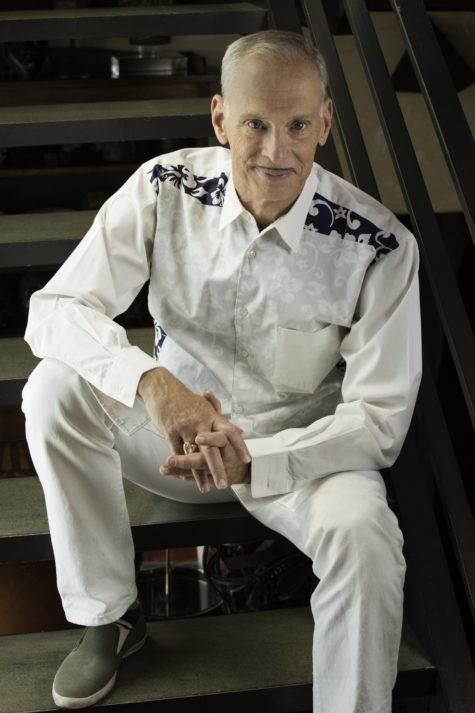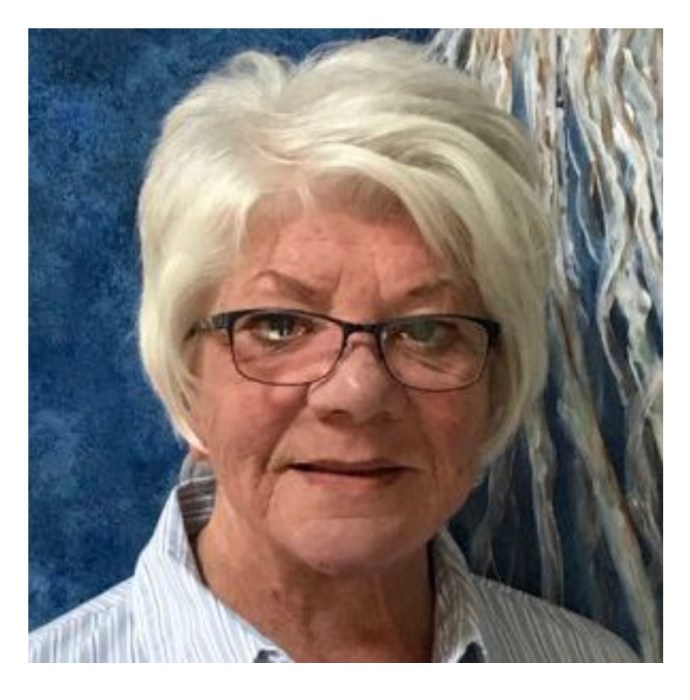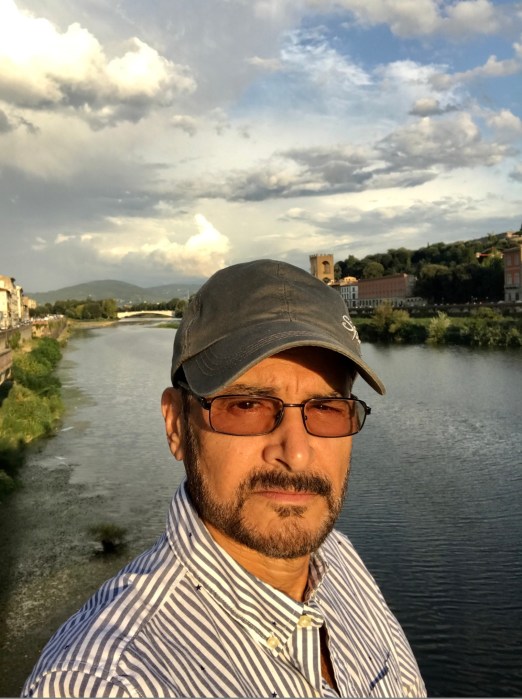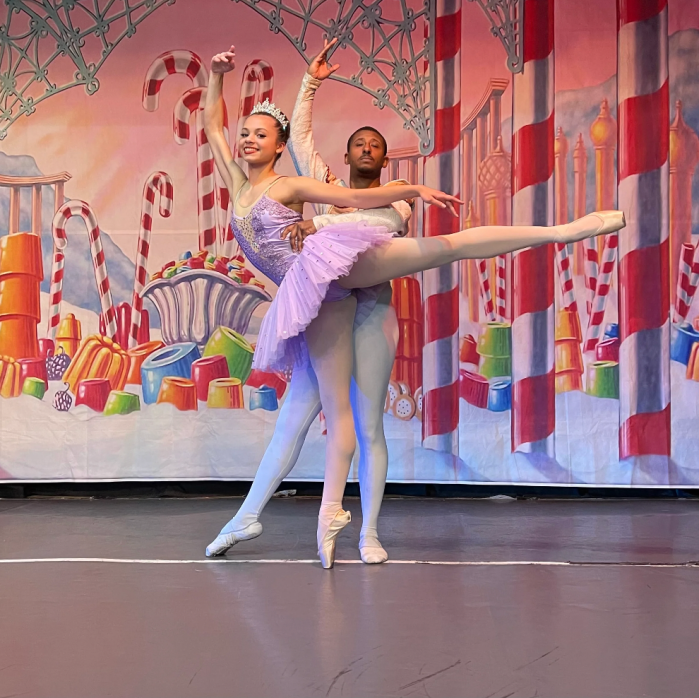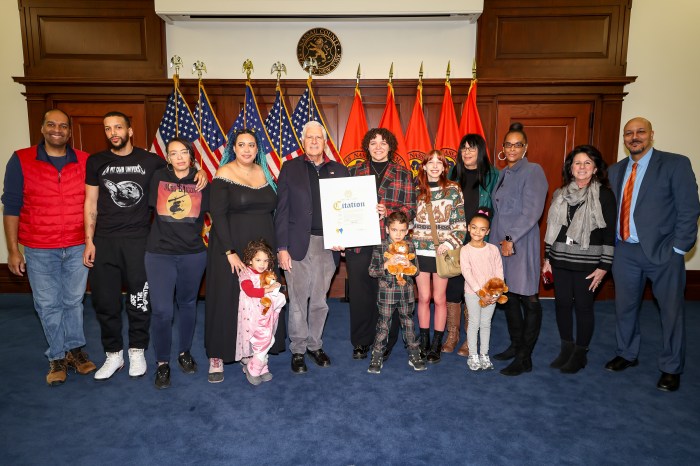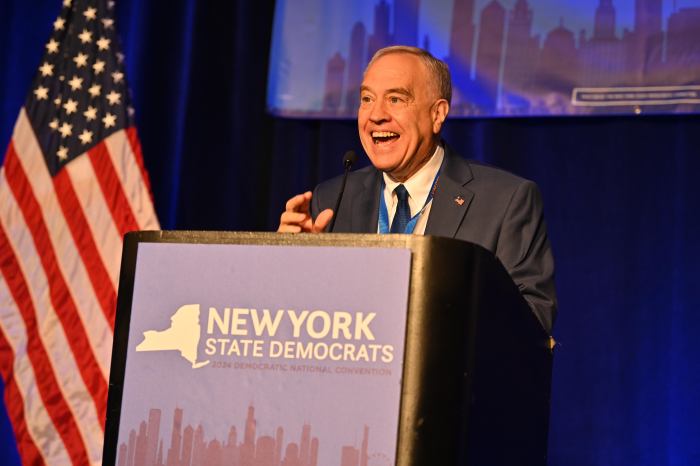By Timothy BolgerJohn Waters, the eccentric filmmaker, artist and author best known for directing the 1988 classic movie Hairspray, is taking his latest one-man show, This Filthy World, on the road to Fire Island Pines, where he’ll perform at Whyte Hall, on Saturday, August 6, at 8 p.m. In advance of his performance, the News had a chance to talk to the so-called Pope of Trash from his home in Provincetown, Massachusetts. He told us about his love of Hairspray star Ricki Lake, who’s opening his show, his love of beach towns, why he has no regrets and how audiences’ reactions to his sometimes-controversial works have changed over the decades. Here’s what he had to say:Fire Island News: Can you tell me about your most memorable trip to Fire Island?John Waters: The last time I went it was great. I remember Carol Channing was going to play in the same place and I thought that is really impressive. And I saw in the dressing room that somebody had left one size 13 high heel. A drag queen high heel was left behind. And I just thought that was such a touching Diane Arbus moment if someone had taken a picture of that old giant high heel that had been left behind. And I was just thinking of Carol Channing playing there and I thought, isn’t show business great? That Carol Channing was coming up here and doing a show at the same place. That was a memorable time that I was there, I think, what was it two years ago? I’m not sure. And when I was young I used to go there with Divine, we used to take the little seaplane that was $25, which was very expensive then for us. Twenty-five each, I think it was $50 maybe. And you would land in the water and wade ashore with your luggage. I always remember that being very glamorous. It was like being in a Tarzan movie.FIN: I don’t think they do that anymore, but I could be wrong.JW: I bet they do, but it probably costs $5,000. And I live in Provincetown, which is like the other kind of gay resort, so I always wonder if they’re going to declare war on each other, who knows? But it’ll be fun to go out, I’m looking forward to it and I do have great memories there from really an early time.FIN: What changes have you noticed since you first went to Fire Island in the 1970s?JW: It doesn’t seem like it’d changed that much. Same with Provincetown, I feel like if I dropped a piece of gum here in 1969 it would still be there. The times have changed so much, I’m sure Fire Island went through the same things that Provincetown did with the whole AIDS thing, you had the hurricane, we’ve had storms. I think like any beach community you have to fight alcoholism in the winter. So to me it’s always a special little place that has been both notoriously sexy, arty, as well as a safe haven for a long, long time. I love those kinds of places. I love weird little communities that almost no one can understand if you don’t go there. It’s like an island in the middle of America. And they’re good ones.FIN: Can you give fans a preview of what to expect in your show?JW: I talk about fashion, I talk about politics, I talk about what I do in Provincetown, I talk about the convention, I talk about how to be a rebel at 70 years old, I talk about maybe I should do drugs again at 70. What possible drugs should I take? I just try to talk about how to be happy and a lunatic at the same time as we get older. But young people are just as good; I give them advice on how to be a juvenile delinquent in a new original way. I preach against separatism, because I truly believe that the only way everything changes is everyone hangs around together. And I think that is why young gay people don’t go to gay bars quite as much, because they want to be with everybody. It’s like having an African American bar. We had Jim Crow laws, we don’t need Mary Crow laws.FIN: Is Ricki Lake opening for just the show in Fire Island Pines or all of them?JW: I only usually do a tour for my Christmas show, which is a different show. I can’t wait to see Ricki, it’s going to be fun! She said, ‘Well we always used to go there with our family.’ I think they didn’t go to Cherry Grove. I adore Ricki, I love her, we’ve been friends forever. I’ve stayed in very close touch with her forever, so it’s going to be great to see her. She can sing, too. She ought to come out and do the whole Hairspray musical!FIN: Have you found audiences are less shocked by your work given the seemingly increasing tolerance for controversial forms of art?JW: If you look at it, Multiple Maniacs, the film I made 47 years ago or something, is opening at the IFC the day before I come, I’m going to the premier. We’re on the cover of the Village Voice. And the review is hilarious. It’s going back to the old kind of reviews. It has some hilarious negative funny quotes. So, no I think Multiple Maniacs, a movie I made so long ago, is more shocking than ever and it’s opening. But I never just tried to shock. I’m trying to make you laugh at your ability to be surprised by anything in a culture that has changed so much since I’ve begun, and become so much more permissive in some ways and less in others. So I’d say the gay community has gotten more conservative than when I was young, and the heterosexual community has sometimes gotten less conservative. But I like the ones that don’t get along in either.FIN: You’ve dabbled in a wide variety of genres, but do you have a single work of which you’re most proud?JW: I think it’s all one giant body of work. The books, the movies, the art shows. I think it’s all one giant body of work really, and I like them all just the same. They’re equally as important because I’m telling stories. And that’s what I’ve always done my whole life. When I was a camper in summer camp I made up this horror story called Reunion, and I read a chapter every night around the campfire and all the kids got nightmares and parents complained and called the camp. Well, I’m still doing that, it never changed. I always like to tell stories that startle people.FIN: Are there any works that you wish you could take back or take your name off of?JW: I see things in movies that I think, ‘oh, I would have shortened that,’ or see technical mistakes, but no, you can’t have regrets. You can have regrets if you were cruel to people or anything, which I hope I have not been. Do I regret anything that I had in a movie? Well I probably wouldn’t have had a chicken executioner like I had in Mondo Trasho because we didn’t eat those chickens. But the chicken that was killed in Pink Flamingos, we did eat. And we got it at a market that said ‘freshly killed chickens.’ Even though I’m really scared of all animals, I am a radical animal rightsist to where I think it’s cruel to have a dog. I think they’re in an S&M relationship with you that they can’t escape, sentenced to a lifetime of human caresses. I seem to have changed some, but I always understand everybody’s opinion. I also can see how much people love their pets, so I’m not against that. But I do have a little—maybe I’ll bring this with me, in case there’s too many dogs—but I have this little thing I sent away for from the National Enquirer called the Dog Bark Stopper. It costs $5 and you put batteries in it and you put it on high or low, which is so ludicrous. And I guess you just point it and it supposedly sends out a sound that shuts ‘em up. Well, you hear any dogs barking in the background? I don’t!FIN: Since you and Edgar Allan Poe are both from Baltimore and similarly drawn to dark works, I have to ask your favorite Poe story.JW: My favorite Poe story? Oh, The Telltale Heart. But when he was living in Baltimore, it was like Billie Holiday. They claim them now, but Billie Holiday they locked up because she was a heroin addict, she had a terrible time in Baltimore–same thing with Edgar Allen Poe. Maybe the best times of their lives weren’t in Baltimore, but maybe that’s why I like that they’re remembered there. I am totally for Edgar Allen Poe being the patron saint of Baltimore, yes, along with Madalyn Murray [O’Hair], the woman who took prayer out of school, the most hated woman in America. I think that we’ve always had eccentric people coming from Baltimore too, and those would be two of my favorites.FIN: Do you have any misperceptions you’d like to clarify?JW: Misperceptions? No, I think I’ve been understood perfectly since the beginning of my career. I have no complaints about that.